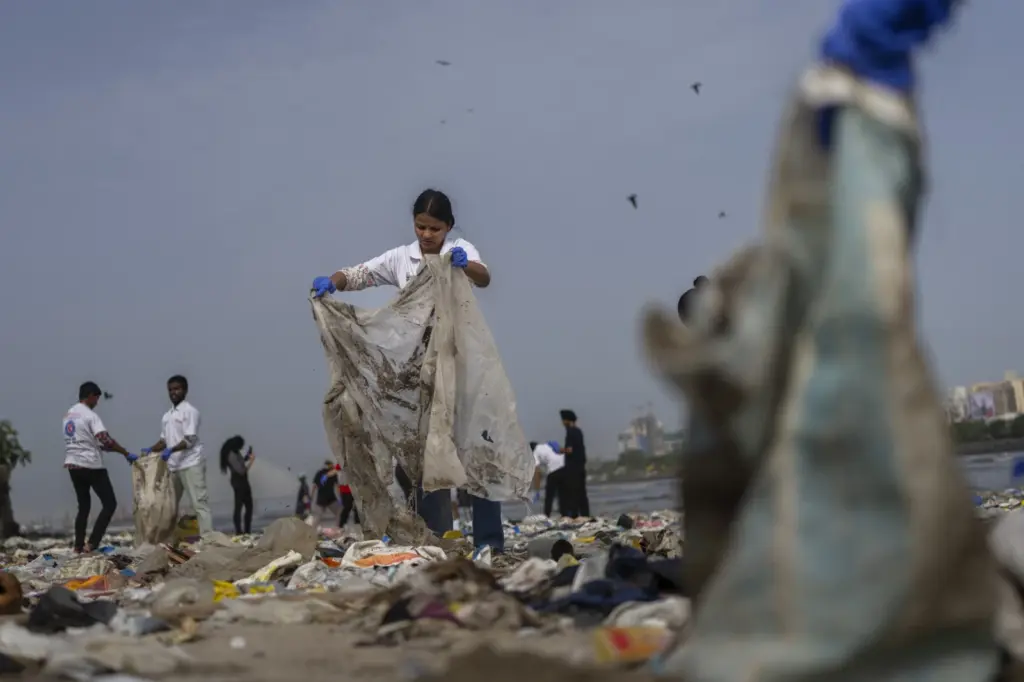
Geneva Hosts Final Talks On Plastics Treaty
KABUL (Pajhwok): In a crucial push to confront one of the planet's most pressing environmental challenges, international negotiators have convened in Geneva for a 10-day summit aimed at finalising a global treaty to end plastic pollution.
The meeting, which began on Tuesday in the Swiss city, marks the sixth round of talks and could be the last, the Associated Press reported.
Delegates from around the world are seeking consensus on a legally binding agreement to address the plastic crisis-though key disagreements remain.
One major divide is whether the treaty should mandate reductions in plastic production, a measure resisted by powerful oil-producing nations, as plastics are largely derived from fossil fuels.
These countries advocate for alternatives such as product redesign, recycling and reuse. However, many other nations-and several major companies-argue that such steps alone are not enough.
Luis Vayas Valdivieso, chair of the negotiating committee and Ecuador's ambassador to the United Kingdom, said:“We are fairly certain that nobody wants plastic pollution. Yet we have not been able to find a systematic and effective way to stop it.”
Vayas believes this meeting could be a historic turning point.“For the first time in history, the world is within reach of a legally binding international instrument to end plastic pollution,” he said.
“We are facing a global crisis. Plastic pollution is damaging ecosystems, polluting our oceans and rivers, threatening biodiversity, harming human health and disproportionately affecting the most vulnerable. The urgency is real.”
Inger Andersen, Executive Director of the United Nations Environment Programme, acknowledged the complexity of the issues but warned the crisis is“truly spiralling” and that the window for action is narrowing.
She said many countries agree on redesigning plastic products to ensure recyclability and improving waste management.
“We need to find a solution to this problem. Everybody wants that. I've yet to meet someone who supports plastic pollution,” Andersen noted.
The use of plastic bags-especially substandard types-has been linked to serious health problems, including cancer, developmental issues in children and mental health conditions in both children and adults.
An estimated 19 to 23 million tonnes of plastic waste enter aquatic ecosystems each year. Without urgent global action, that figure could rise by 50% by 2040, according to the United Nations.
kk/sa

Legal Disclaimer:
MENAFN provides the
information “as is” without warranty of any kind. We do not accept
any responsibility or liability for the accuracy, content, images,
videos, licenses, completeness, legality, or reliability of the information
contained in this article. If you have any complaints or copyright
issues related to this article, kindly contact the provider above.
Most popular stories
Market Research

- Mutuum Finance (MUTM) New Crypto Coin Eyes Next Price Increase As Phase 6 Reaches 50% Sold
- Bydfi Highlights 'BUIDL' Ethos During Newcastle United Match Against Arsenal
- Flexm Recognized As“Highly Commended” In The Regtech Category At The Asia Fintech Awards Singapore 2025
- Solotto Launches As Solana's First-Ever Community-Powered On-Chain Lottery
- Moonx: The Leading Crypto Trading Platform With X1000 Leverage And Unlimited Meme Coin Access
- Stonehaven Circle Marks 13Th Anniversary With Hadrian Colwyn Leading Calvio Ailegacyx Innovation




















Comments
No comment